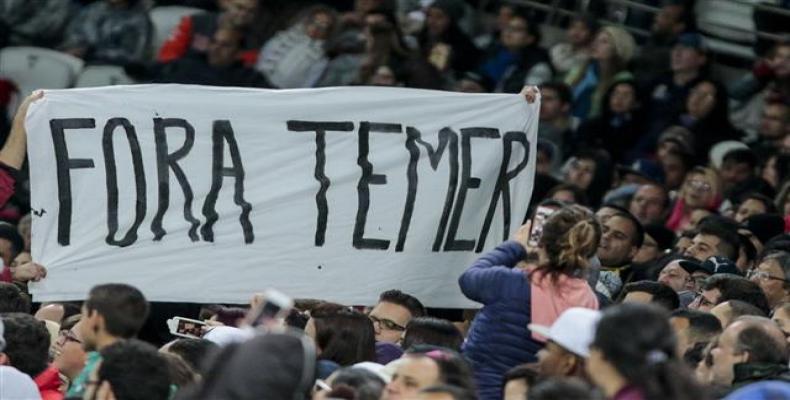United Nations, November 11 (RHC)-- Human rights specialists working as part of the United Nations have urged Brazilian President Michel Temer to adopt urgent measures to combat slave labor in Brazil, criticizing the government decree ordering budget cuts destined for its eradication.
A joint statement by the human rights specialists read that although Brazil has oftentimes played a “leadership role in the fight against modern-day slavery,” it's now “surprising and disappointing to see measures that can make the country lose terrain on this front,” according to Brasil 24/7.
Urmila Bhoola, the U.N.'s Special Rapporteur on Modern-Day Slavery, said that the government decree “puts Brazil at risk to take a step back in the way it regulates its businesses.” She stressed that it's “essential for Brazil to take decisive actions to prevent the impairment of anti-slavery measures implemented over the last decade,” which would, “in turn, weaken the protection of poor and excluded populations that are vulnerable to slavery.”
The government decree, which altered the terms by which people who are exploited under conditions analogous to slavery could benefit from legal proceedings and was officially adopted on October 16th, has been temporarily suspended by Brazil's Supreme Court.
One of the measures outlined in the decree redefines slavery as being confined to "restrictions on the freedom of movement" of workers. However, experts note that such a reformulation pushes the country back to 1888 when slavery was abolished in Brazil, the last country in the western hemisphere to do so.
Another sticking point that provoked widespread outrage is the newfound discretion of the labor ministry to divulge or disclose the names of those companies involved in slave labor practices.
Attempting to defend its decision, the Temer administration argued that “serious deviations” can result from going overboard with appeals made to the position of workers, citing an alleged case where an employer was intimidated, insulted and beaten by employees for not having put a soap dish in staff bathrooms.
Surya Deva, head of the U.N. Working Group on human rights and transnational corporations and other businesses, also expressed concern about the government decree despite its temporary suspension, according to Carta Capital. She said that she's “worried about other actions, including budget cuts dedicated to work inspections, which play a fundamental role in the detection of victims the eradication of slavery.”


